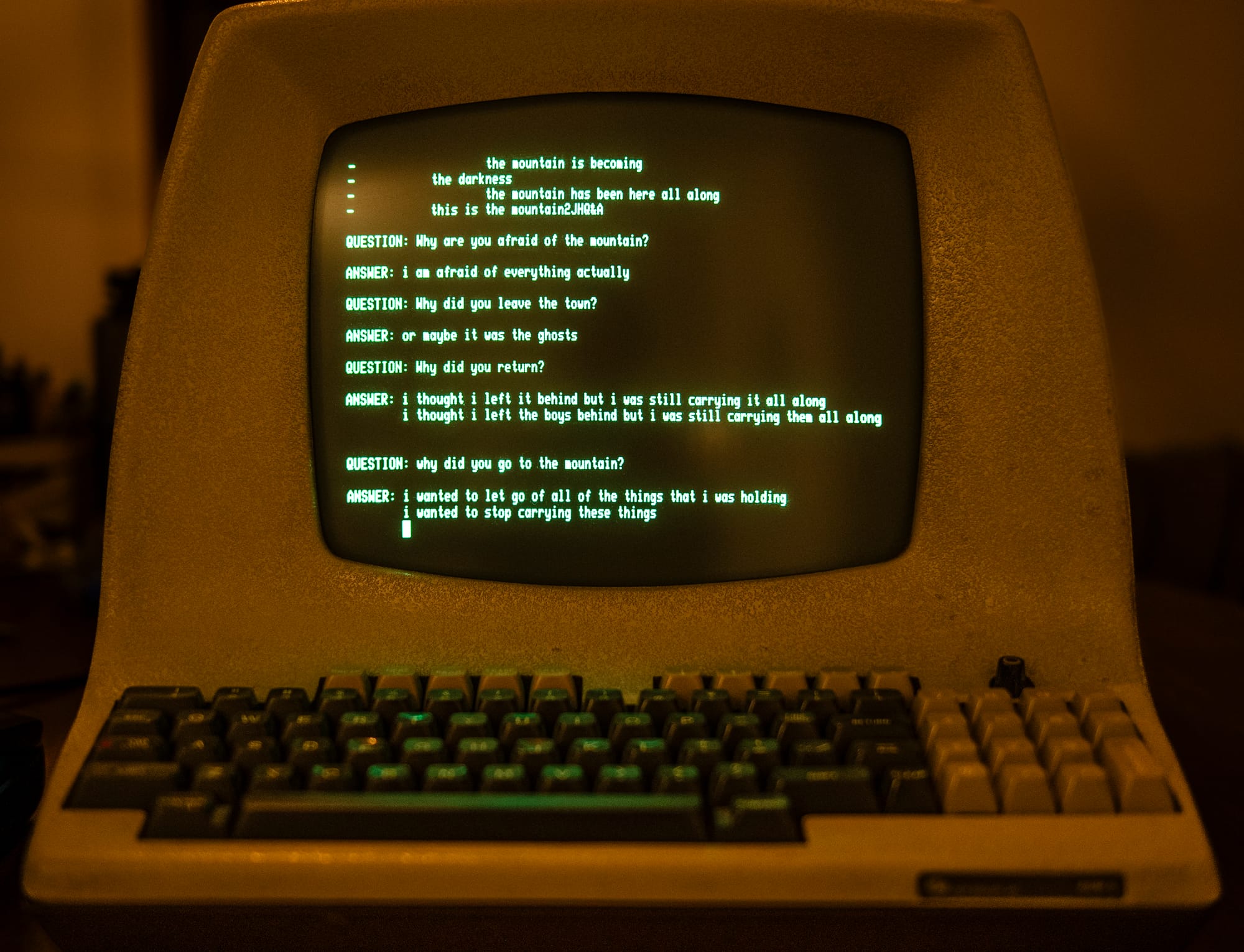Unless you’re living in a ChatGPT hype-bro bubble, it’s a pretty common sentiment these days that the internet is getting shittier. Social media algorithms have broken our brains, AI slop flows freely through Google search results like raw sewage, and tech companies keep telling us that this new status quo is not only inevitable, but Good.
Standing in stark opposition to these trends is New Session, an online literary zine accessed via the ancient-but-still-functional internet protocol Telnet.
Like any other zine, New Session features user-submitted poems, essays, and other text-based art. But the philosophy behind each of its digital pages is anything but orthodox.
“In the face of right-wing politics, climate change, a forever pandemic, and the ever-present hunger of imperialist capitalism, we have all been forced to adapt,” reads the intro to New Session’s third issue, titled Adaptations, which was released earlier this month. “Both you and this issue will change with each viewing. Select a story by pressing the key associated with it in the index. Read it again. Come back to it tomorrow. Is it the same? Are you?”
The digital zine is accessible on the web via a browser-based Telnet client, or if you’re a purist like me, via the command line. As the intro promises, each text piece changes—adapts—depending on various conditions, like what time of day you access it or how many times you’ve viewed it. Some pieces change every few minutes, while others update every time a user looks at it, like gazing at fish inside a digital aquarium.
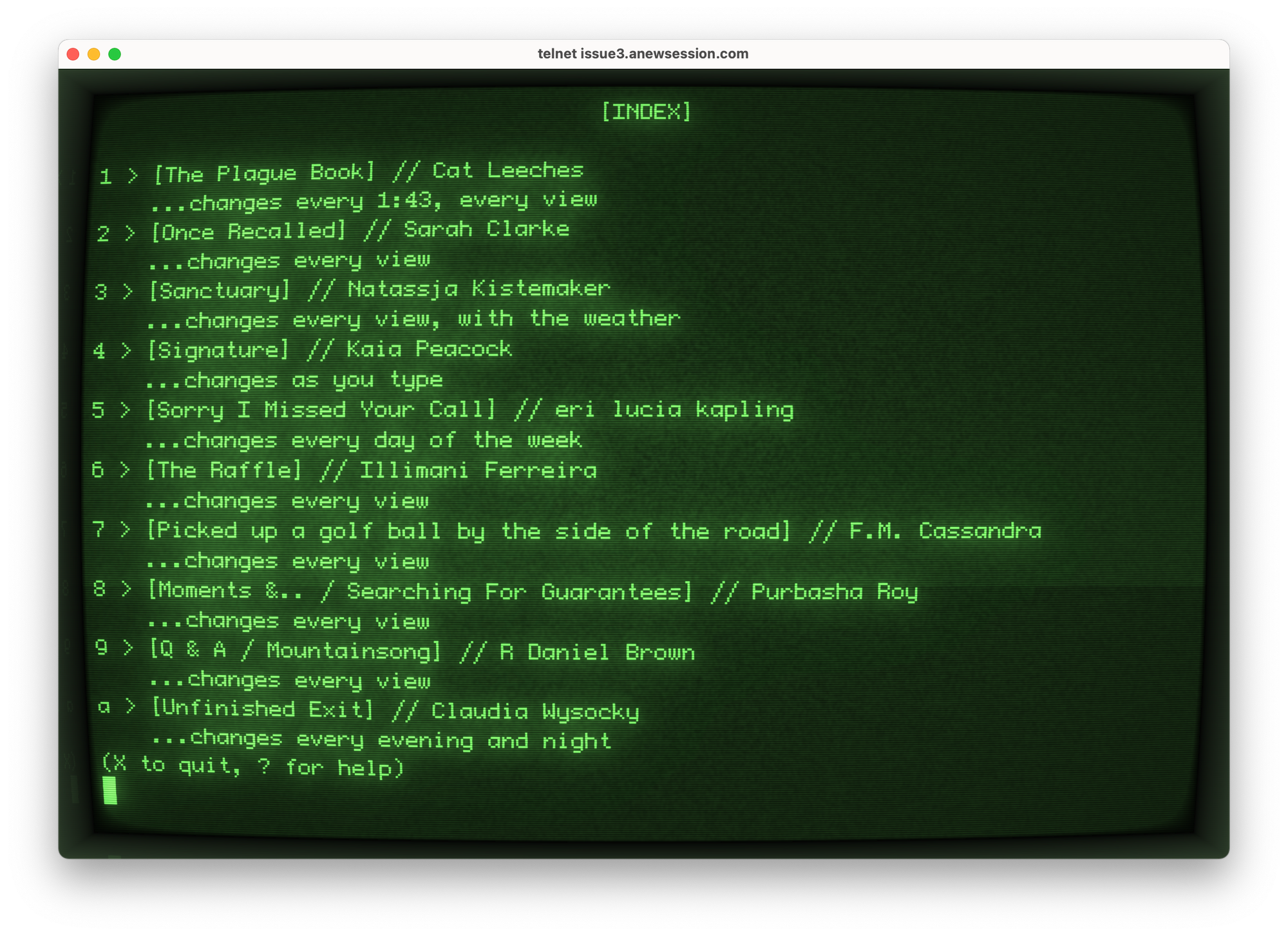
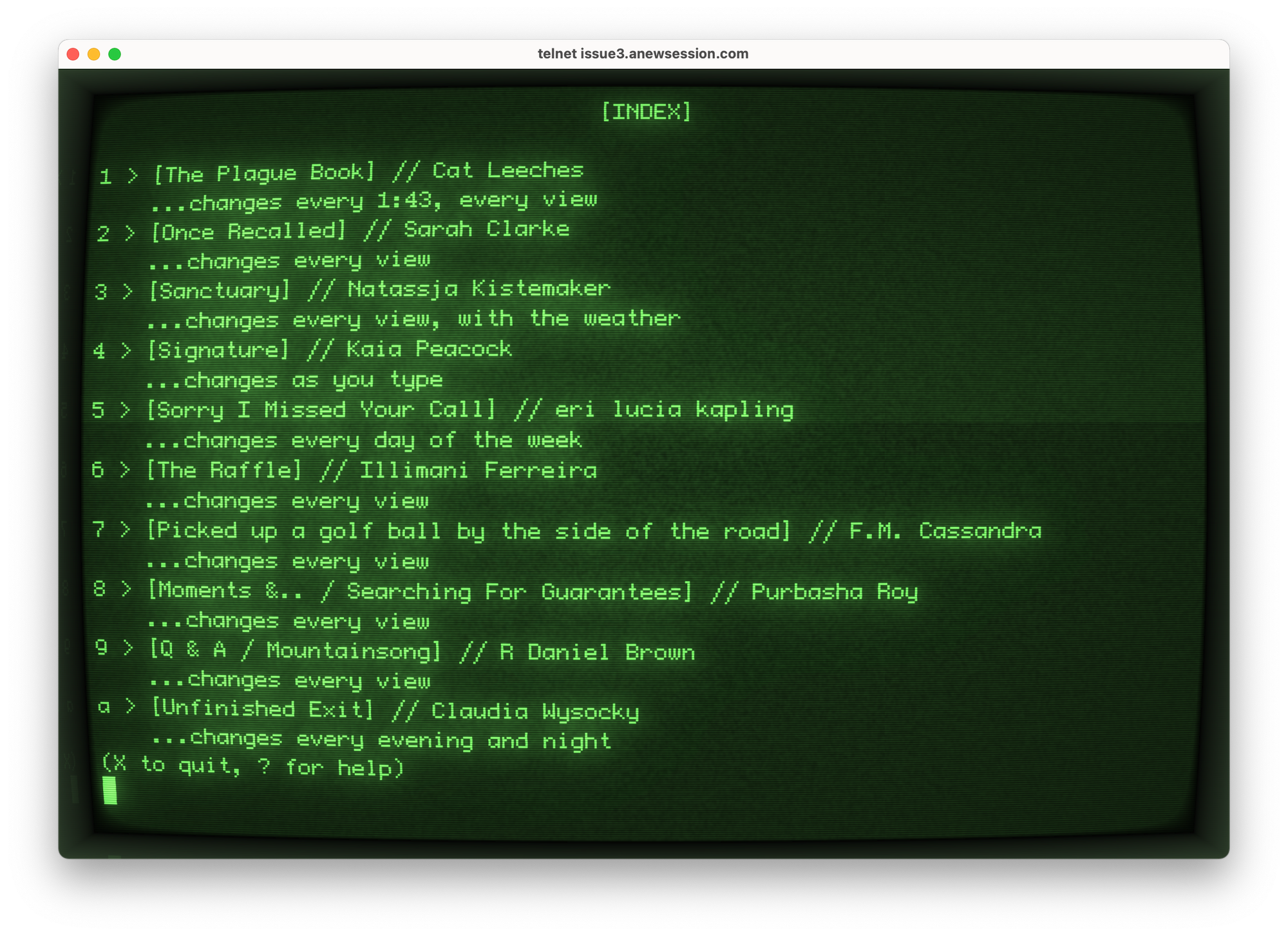
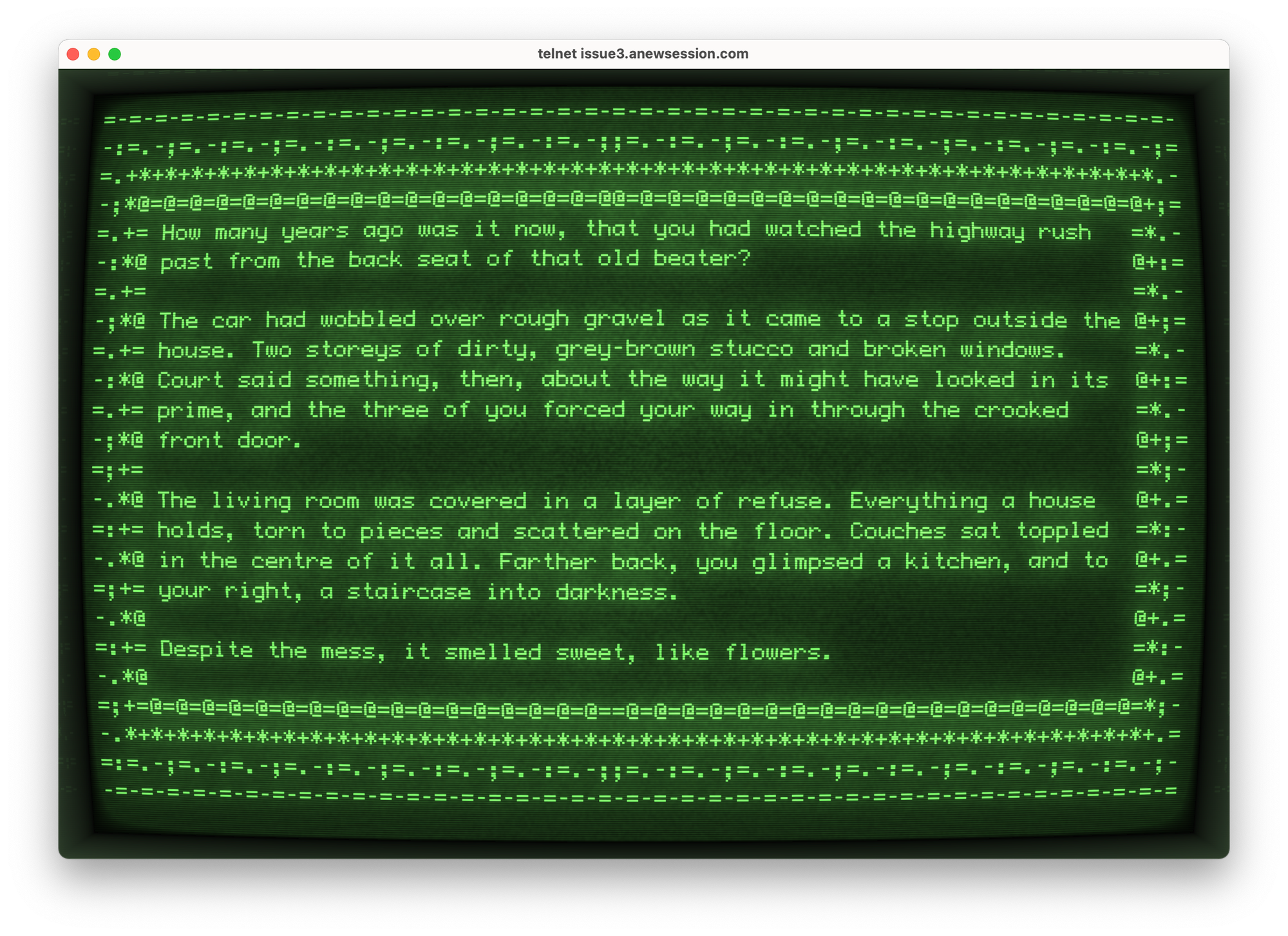
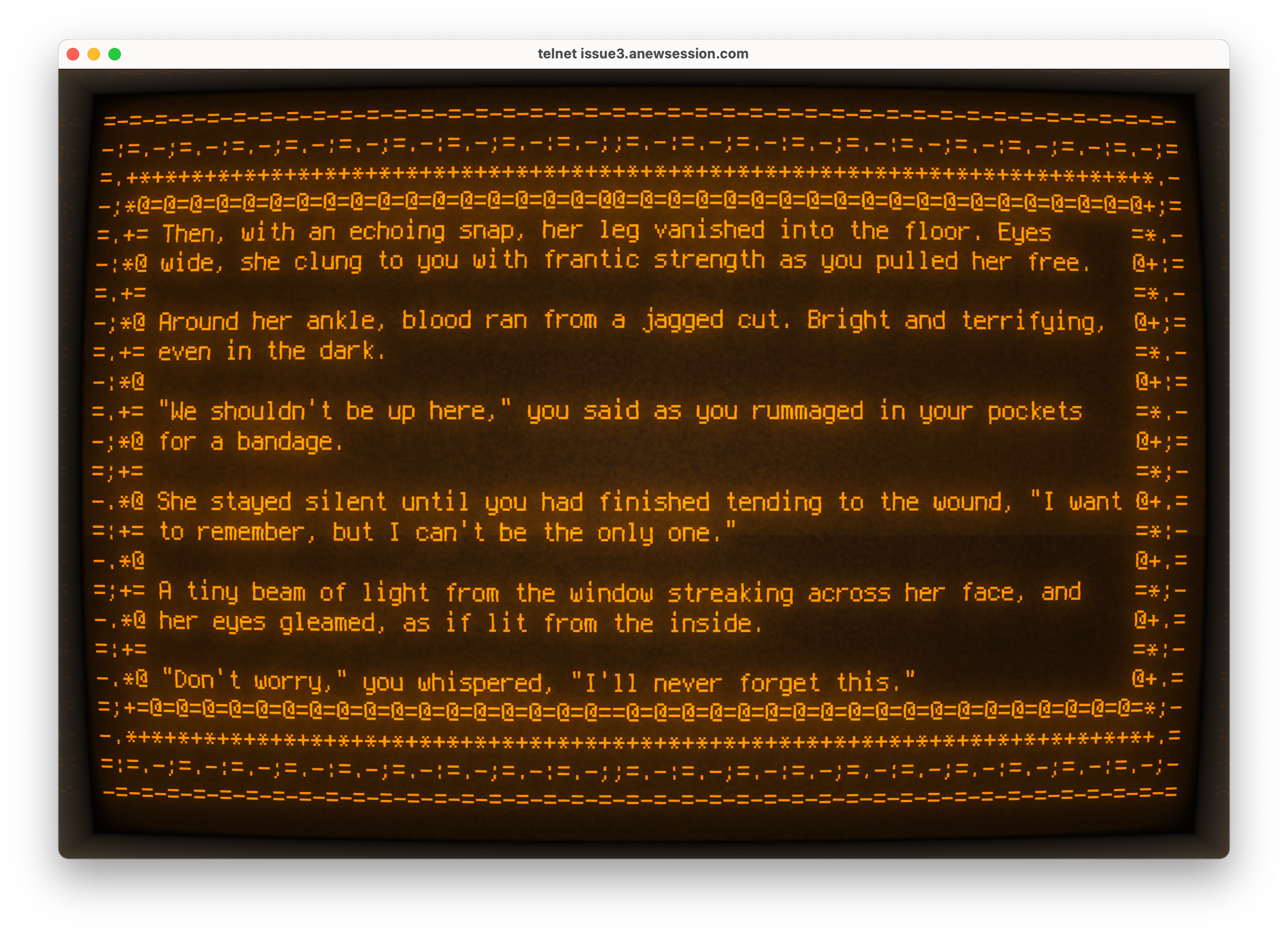
How New Session looks on Telnet. Images courtesy Cara Esten Hurtle
Once logged in, the zine’s main menu lists each piece along with the conditions that cause it to change. For example, Natasja Kisstemaker’s “Sanctuary” changes with every viewing, based on the current weather. “Signature,” by Kaia Peacock, updates every time you press a key, slowly revealing more of the piece when you type a letter contained in the text—like a word puzzle on Wheel of Fortune.
Cara Esten Hurtle, an artist and software engineer based in the Bay Area, co-founded New Session in 2021 along with Lo Ferris, while searching for something to do with her collection of retro computers during the early days of the COVID-19 pandemic.
“I realized I’d been carrying around a lot of old computers, and I thought it would be cool to be able to do modern stuff on these things,” Hurtle told 404 Media. “I wanted to make something that was broadly usable across every computer that had ever been made. I wanted to be like, yeah, you can run this on a 1991 Thinkpad someone threw away, or you could run it on your modern laptop.”
If you’re of a certain age, you might remember Telnet as a server-based successor to BBS message boards, the latter of which operated by connecting computers directly. It hearkens back to a slower internet age, where you’d log in maybe once or twice a day to read what’s new. Technically, Telnet predates the internet itself, originally developed as a networked teletype system in the late ‘60s for the internet’s military precursor, the ARPAnet. Years later, it was officially adopted as one of the earliest internet protocols, and today it remains the oldest application protocol still in use—though mainly by enthusiasts like Hurtle.
New Session intentionally embraces this slower pace, making it more like light-interactive fiction than a computer game. For Hurtle, the project isn’t just retro novelty—it’s a radical rejection of the addictive social media and algorithmic attention-mining that have defined the modern day internet.
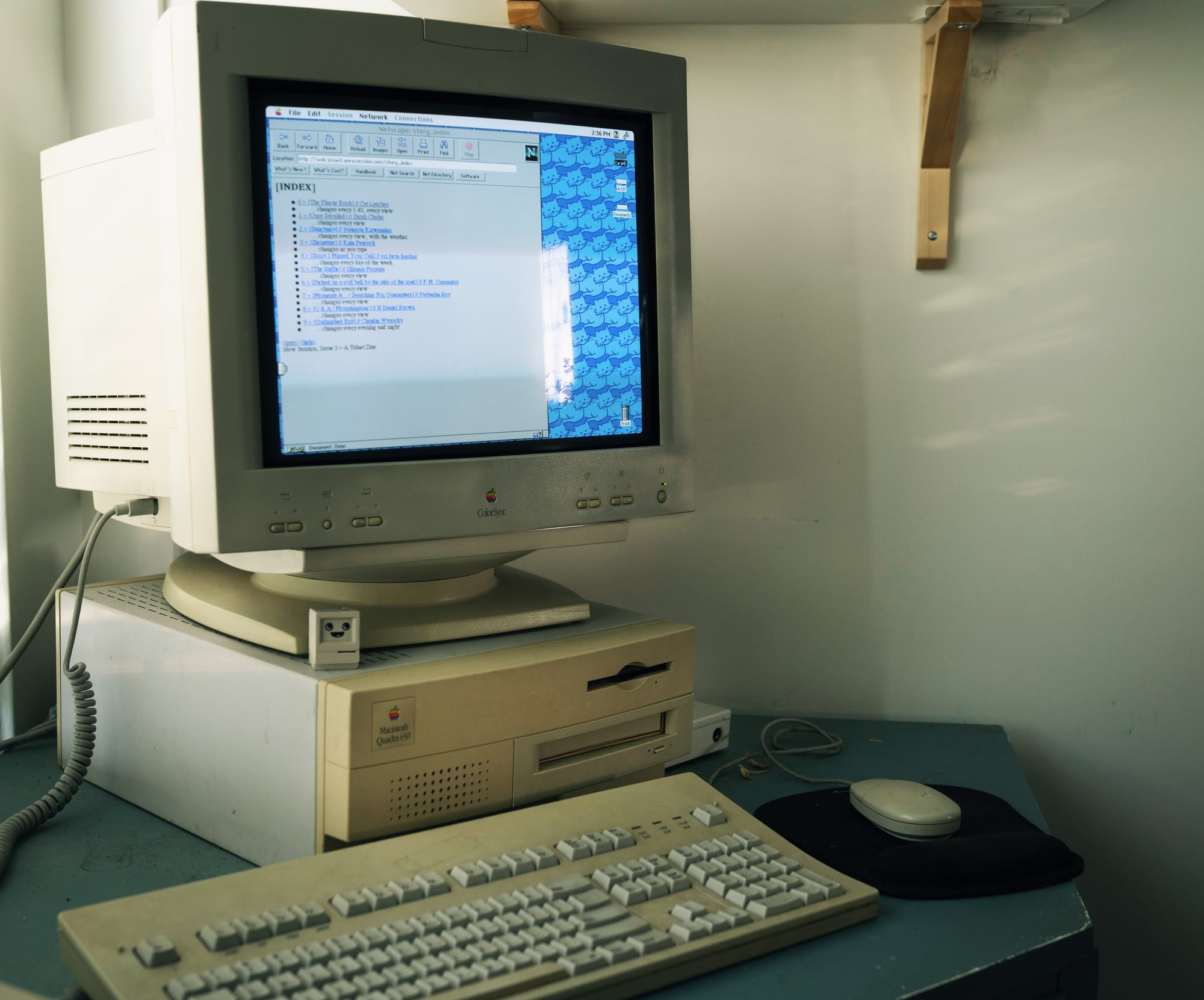
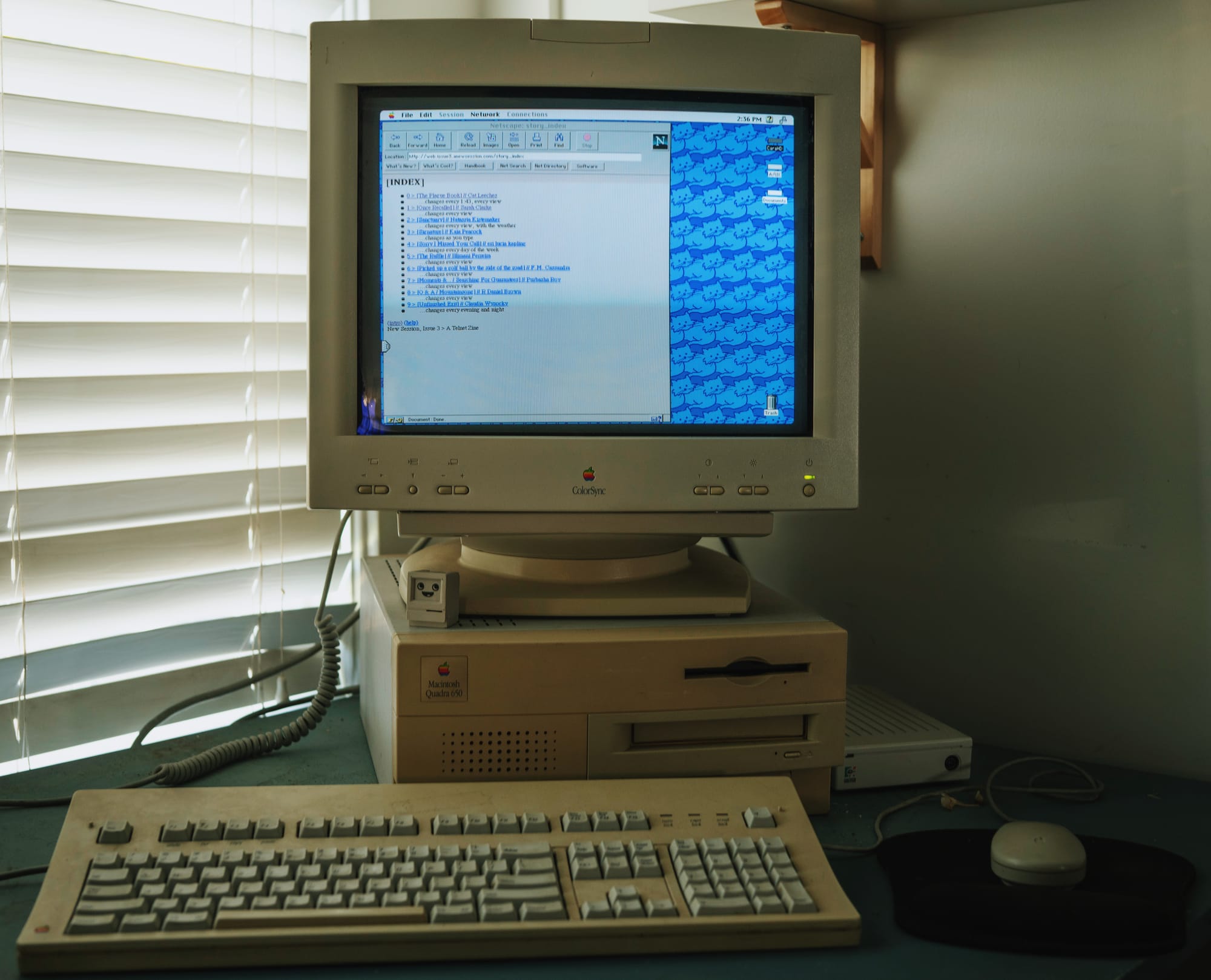
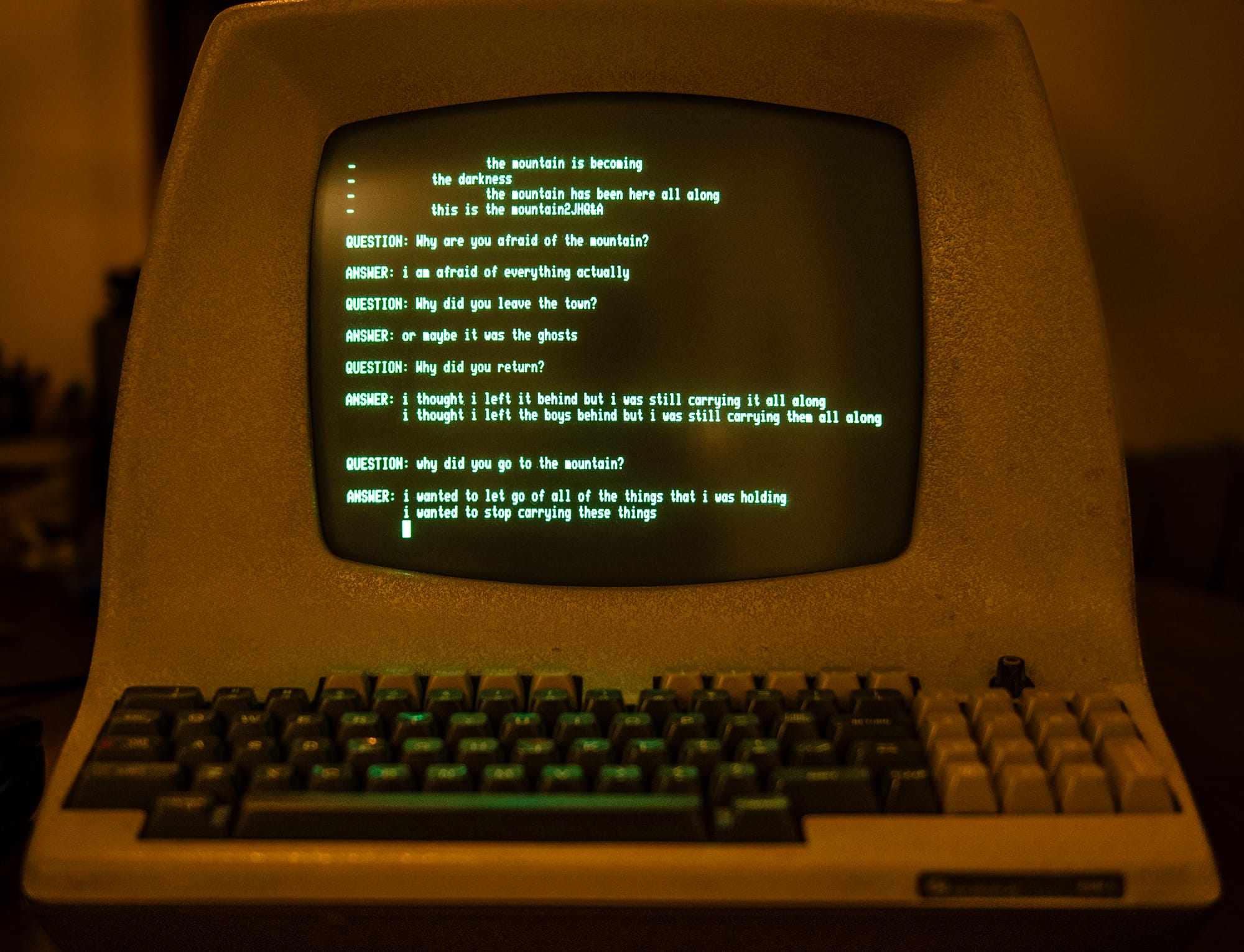
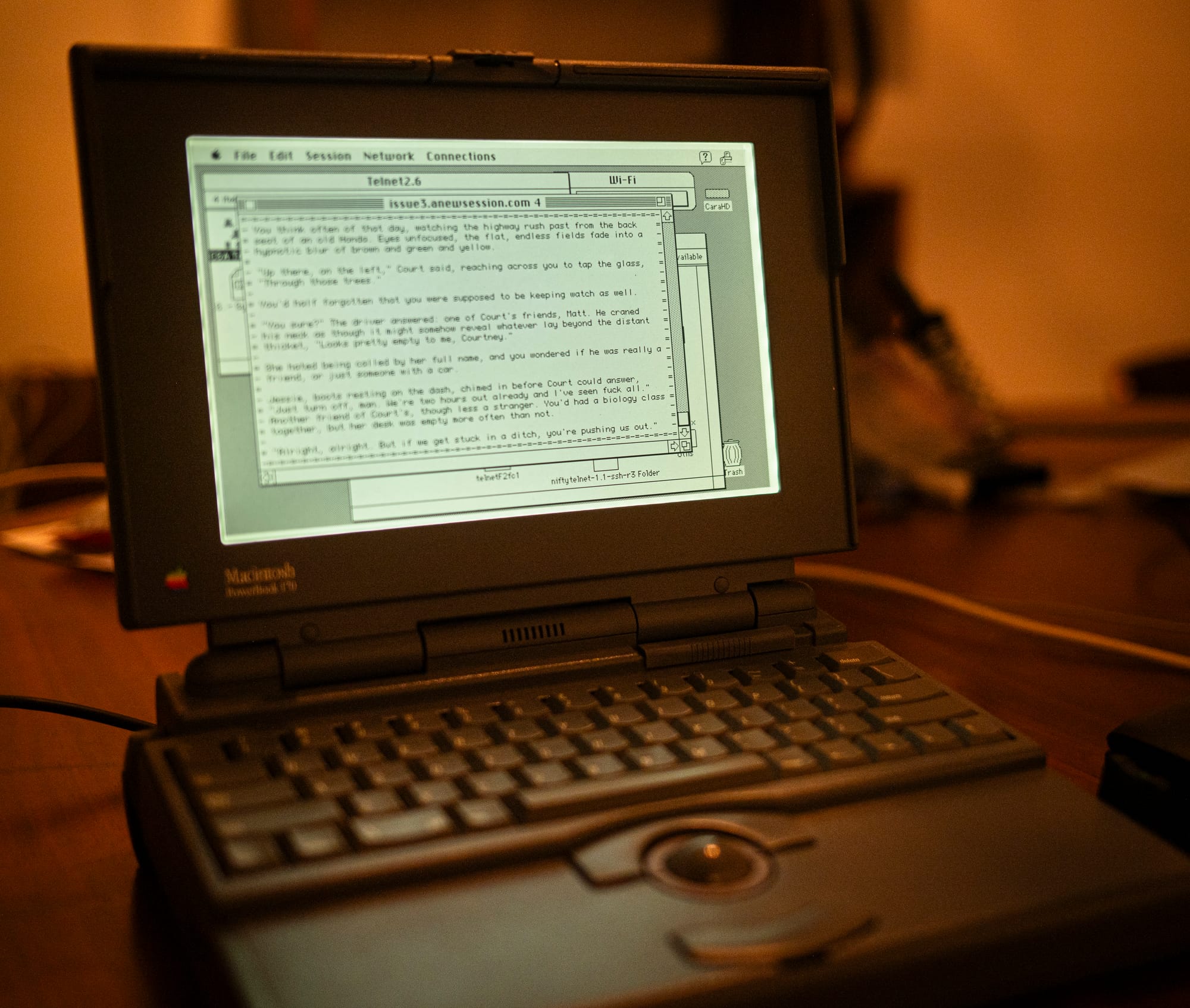
New Session viewed on a variety of Hurtle's collection of machines. Photos courtesy Cara Esten Hurtle
“I want it to be something where you don’t necessarily feel like you have to spend a ton of time with it,” said Hurtle. “I want people to come back to it because they’re interested in the stories in the same way you’d come back to a book—not to get your streak on Duolingo.”
I won’t go into too much detail, because discovering how the pieces change is kind of the whole point. But on the whole, reading New Session feels akin to a palette cleanser after a long TikTok binge. Its very design evokes the polar opposite of the hyper-consumerist mindset that brought us infinite scrolls and algorithmic surveillance. The fact that you literally can’t consume it all in one session forces readers to engage with the material more slowly and meaningfully, piquing curiosity and exercising intuition.
At the same time, the zine isn’t meant to be a nostalgic throwback to simpler times. New Session specifically solicits works from queer and trans writers and artists, as a way to reclaim a part of internet history that was credited almost entirely to white straight men. But Hurtle says revisiting things like Telnet can also be a way to explore paths not taken, and re-assess ideas that were left in the dustbin of history.
“You have to avoid the temptation to nostalgize, because that’s really dangerous and it just turns you into a conservative boomer,” laughs Hurtle. “But we can imagine what aspects of this we can take and claim for our own. We can use it as a window to understand what’s broken about the current state of the internet. You just can’t retreat to it.”
Projects like New Session make a lot of sense in a time when more people are looking backward to earlier iterations of the internet—not to see where it all went wrong, but to excavate old ideas that could have shaped it in a radically different way, and perhaps still can. It’s a reminder of that hidden, universal truth—to paraphrase the famous David Graeber quote—that the internet is a thing we make, and could just as easily make differently.
